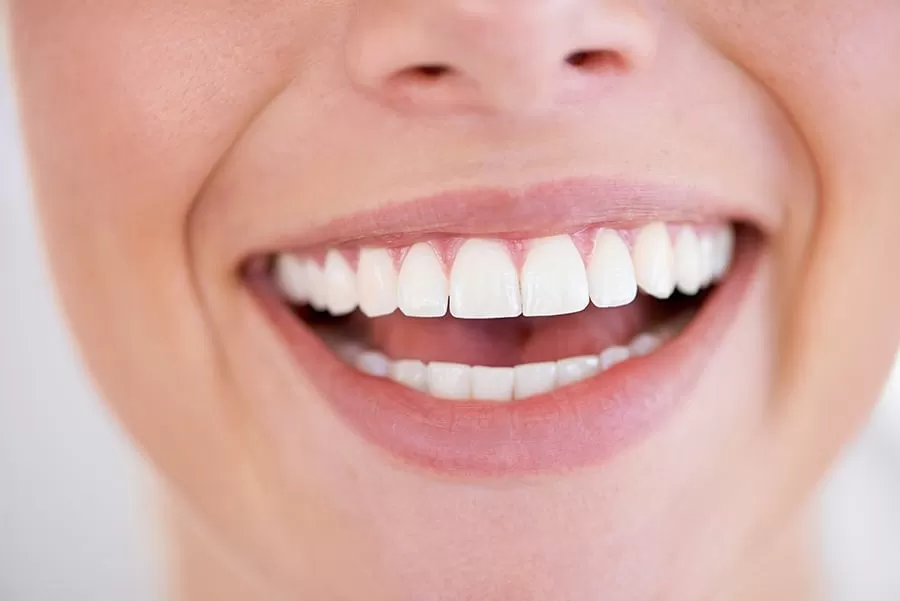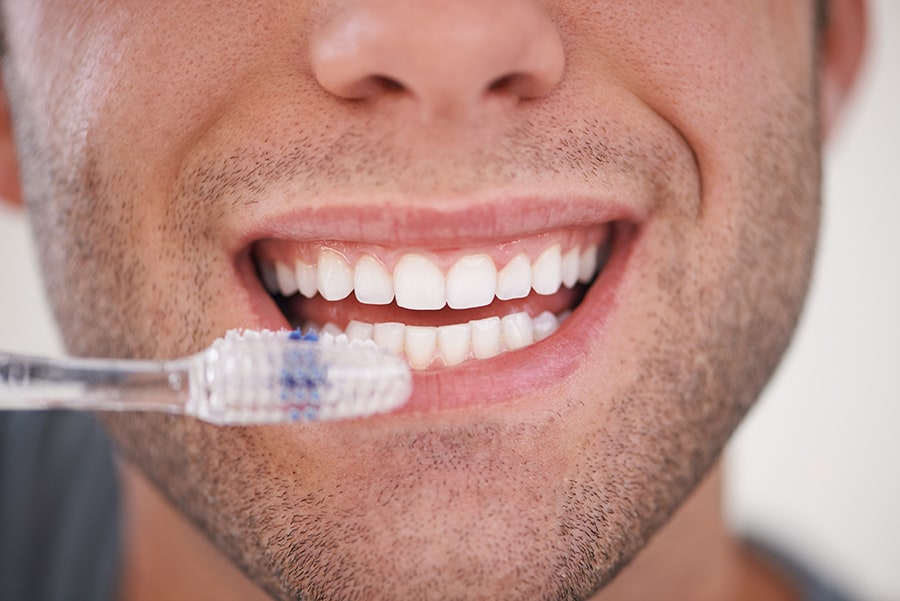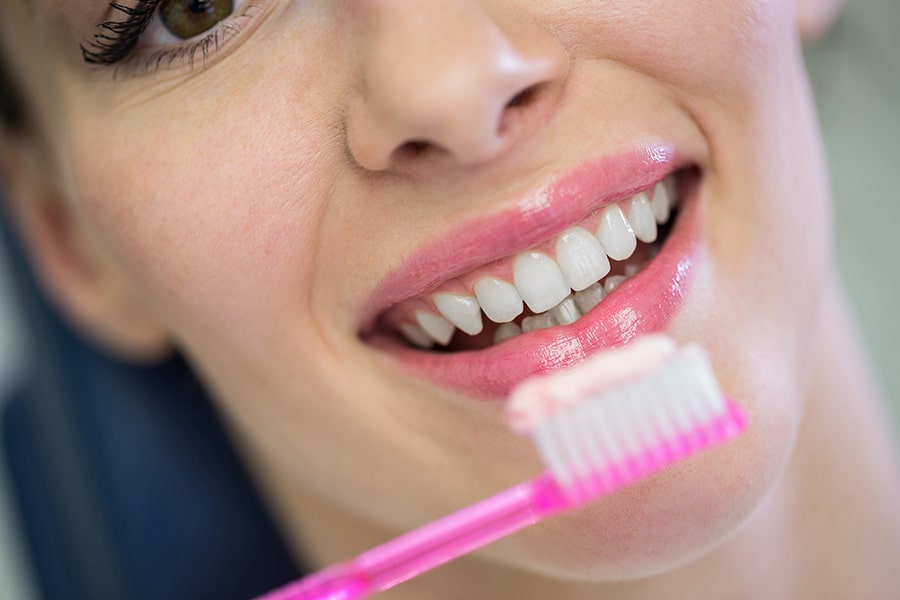Dental Porcelain Veneers Quiz
The Benefits of Dental Porcelain Veneers: Aesthetic Enhancements for a Beautiful Smile

1. What is the primary benefit of dental porcelain veneers?
Dental porcelain veneers are a popular cosmetic dentistry treatment that can have a significant impact on a patient’s appearance. These thin, custom-made shells are bonded to the front of natural teeth to improve their appearance, from shape and size to color and overall aesthetic appeal. One of the primary benefits of veneers is that they can transform a less-than-perfect smile into a beautiful one quickly and comfortably. Veneers may require some preparation of the natural teeth, but the procedure is typically painless and can be completed in just a few appointments. Patients who get veneers can enjoy the benefits of a healthy, natural-looking smile that resists stain and discoloration. Cosmetic dentistry experts can consult with patients to help them decide whether veneers are the right treatment for their needs. They can also schedule appointments to bond the veneers to the natural teeth and answer any true or false questions patients may have about the process. For a more detailed understanding of veneers, patients can take a quiz to find out if they are good candidates for this treatment.

2. What dental issues can porcelain veneers address?
Porcelain veneers are a cosmetic dental treatment that can address a variety of dental issues. These thin shells of porcelain are placed over the front surface of the teeth to improve their appearance, and they can be used to address a wide range of cosmetic dental issues. Some of the dental issues that porcelain veneers can address include:
1. Discolored teeth: Porcelain veneers can be used to cover teeth that are discolored or stained, providing a bright, white, and uniform appearance.
2. Chipped or broken teeth: Porcelain veneers can be used to restore teeth that are chipped or broken, providing a natural-looking and durable solution.
3. Misaligned teeth: Porcelain veneers can be used to improve the appearance of teeth that are misaligned, helping to create a straighter and more even smile.
4. Gaps between teeth: Porcelain veneers can be used to close gaps between teeth, providing a more uniform and aesthetically pleasing appearance.
5. Irregularly shaped teeth: Porcelain veneers can be used to reshape teeth that are irregularly shaped, providing a more harmonious and attractive smile.
It is important to note that while porcelain veneers can address a variety of cosmetic dental issues, they are not a solution for underlying dental problems, such as decay or gum disease. Patients who are considering porcelain veneers should have a thorough dental exam to ensure that their teeth and gums are healthy before undergoing the procedure.
In summary, porcelain veneers are a versatile cosmetic dental treatment that can address a variety of dental issues, including discolored teeth, chipped or broken teeth, misaligned teeth, gaps between teeth, and irregularly shaped teeth. Patients who are considering porcelain veneers should discuss their cosmetic goals with their dentist to determine if this treatment is the right solution for them.

3. How long do porcelain veneers typically last?
Porcelain veneers are thin shells of tooth-colored material that are custom-made to cover the front surface of the teeth. They are a popular cosmetic dentistry option that can improve the appearance of teeth that are discolored, chipped, misshapen, or unevenly spaced. Porcelain veneers are durable and can last for many years with proper care, but their lifespan can vary depending on a number of factors.
On average, porcelain veneers can last between 10 and 15 years. However, this estimate can vary widely based on a variety of factors including the quality of the veneers, the skill of the dentist who placed them, the patient’s oral hygiene habits, and their lifestyle habits such as diet and smoking.
One of the most important factors that can affect the lifespan of porcelain veneers is the quality of the materials used to make them. High-quality porcelain veneers that are made with advanced bonding techniques tend to last longer than lower quality veneers that are made with cheaper materials.
The skill and experience of the dentist who places the veneers is also a critical factor. A dentist who has extensive experience in cosmetic dentistry can ensure that the veneers are properly placed, bonded, and aligned with the rest of the teeth. Poorly placed veneers can lead to problems such as sensitivity, chipping, or cracking, which can shorten their lifespan.
Proper oral hygiene habits are also essential for the longevity of porcelain veneers. Patients should brush their teeth twice a day with a soft-bristled toothbrush and floss at least once a day. Regular dental checkups and cleanings are also important to maintain the health of the teeth and gums.
Lastly, lifestyle habits such as diet and smoking can affect the lifespan of porcelain veneers. A diet high in acidic foods and drinks can erode the enamel of the teeth, which can weaken the veneers. Smoking can also cause staining and discoloration of the veneers over time.
In summary, porcelain veneers can last for many years with proper care, but their lifespan can vary widely depending on a number of factors. Patients should choose a reputable dentist who uses high-quality materials, practice good oral hygiene habits, and avoid lifestyle habits that can damage the veneers.

4. Are porcelain veneers a permanent treatment?
Porcelain veneers are a popular cosmetic dental treatment that can be used to address a variety of dental issues, such as discolored, misaligned, or chipped teeth. Porcelain veneers are designed to mimic the look of natural teeth and are made from a thin layer of porcelain that is bonded to the front surface of the teeth.
One common question that patients have about porcelain veneers is whether they are a permanent treatment. While porcelain veneers can last for many years, they are not considered to be a permanent solution. Porcelain veneers can last anywhere from 10 to 15 years or more with proper care and maintenance, but they will eventually need to be replaced.
One reason that porcelain veneers are not considered a permanent treatment is that they can become damaged or worn over time. The porcelain material used in veneers is not as strong as natural tooth enamel, and it can chip or crack under certain circumstances, such as biting down on hard objects or grinding the teeth.
Additionally, changes in the mouth, such as gum recession or shifting of the teeth, can affect the fit of the veneers over time, and they may need to be adjusted or replaced. Proper oral hygiene and regular dental check-ups are essential for maintaining the longevity of porcelain veneers.
While porcelain veneers are not a permanent solution, they are a long-lasting and effective treatment for improving the appearance of the teeth. Patients who are considering porcelain veneers should discuss their cosmetic goals with their dentist to determine if this treatment is right for them. They should also be prepared to commit to proper care and maintenance to ensure the longevity of their porcelain veneers.

5. Can porcelain veneers stain or discolor over time?
Another question that patients often ask about porcelain veneers is whether they can stain or discolor over time. The answer is that while porcelain veneers are resistant to staining, they can still become discolored over time.
Porcelain veneers are made from a material that is highly resistant to stains and discoloration. Unlike natural teeth, porcelain veneers are non-porous, which means that they are less likely to absorb stains from food and beverages. However, it is still possible for the surface of the veneers to become discolored over time.
One common reason why porcelain veneers may become discolored is due to the buildup of plaque or tartar on the surface of the veneers. Plaque and tartar can accumulate on the surface of the veneers just like they can on natural teeth, and this can cause the veneers to look dull or discolored.
Another reason why porcelain veneers may become discolored is due to wear and tear over time. While porcelain is a durable material, it can still be affected by the natural wear and tear of daily use. This can cause the surface of the veneers to become rough or porous, which can make them more prone to staining.
To prevent porcelain veneers from becoming discolored over time, it is important to practice good oral hygiene habits, such as brushing and flossing regularly and visiting the dentist for regular check-ups and cleanings. Additionally, patients should avoid consuming foods and beverages that are known to stain teeth, such as coffee, tea, red wine, and berries.
If porcelain veneers do become discolored over time, they may be able to be polished or cleaned by a dental professional. In some cases, the veneers may need to be replaced in order to restore their natural appearance. Patients who are considering porcelain veneers should discuss the potential for staining and discoloration with their dentist to determine if this treatment is right for them.
Frequently Asked Question
1. What are Dental Porcelain Veneers?
Dental porcelain veneers are thin shells of ceramic or resin that are placed on the front surface of teeth to correct cosmetic and restorative concerns. Before deciding to receive porcelain veneers, it is recommended to schedule a consultation with a dental professional like BOCH, to determine if veneers are right for you. They are often used to improve the appearance of teeth that are discolored, misaligned or potentially even missing. When you receive porcelain veneers, it is important to continue practicing good dental care habits and upkeep. With proper attention, veneers can last for many years and provide you with a healthy and attractive smile that you can be proud of. If you’re interested in getting veneers, schedule an appointment with your dentist today to see if they are the right solution for you.
2. How do Dental Porcelain Veneers work?
Dental porcelain veneers are ultra-thin shells of ceramic material that are bonded to the front surface of your teeth. They are designed to improve the appearance of your smile by covering up imperfections such as minor crookedness, gaps, staining, or chipped or missing teeth. To create the veneers, impressions are taken of your teeth and sent to a dental laboratory where they will be fabricated to fit perfectly. The veneers are then bonded to your teeth with a dental bonding agent. Porcelain veneers provide the same function as healthy teeth, but they also offer cosmetic benefits. They can be used as a smile makeover for those who want to transform their appearance. With veneers, you can have a more symmetrical, white, and straighter smile. The composite filling or dental bonding is used to surround your tooth decay after removal. To learn more about dental porcelain veneers, test your knowledge by taking a quiz with the answer key.
3. What is the process for getting Dental Porcelain Veneers?
The process for getting dental porcelain veneers is comprehensive and requires a skilled dentist. First, you’ll need to undergo a candidacy consultation to determine if veneers right for you. To help you get the best results, your dentist may also conduct a quiz to personalize your cosmetic treatment plan. During the procedure, the dentist will remove a small amount of tooth enamel to make room for the veneers. A skilled dentist will then take impressions of your teeth and send them to a dental lab where the veneers will be crafted. Once the veneers are ready, they will be bonded to your teeth. Bonding can often be completed in one visit for few teeth or over a span of a few weeks for many teeth. With porcelain veneers, you’ll be able to smile with confidence and show off your new, beautiful smile.
4. How long do Dental Porcelain Veneers last?
Dental porcelain veneers are a popular cosmetic dentistry solution that can help individuals enhance and correct the appearance of their teeth. Porcelain veneers are thin, custom-made shells that are bonded to the outer surface of the tooth. They are long-lasting and durable, with a lifespan that may range between 10 to 15 years, but with proper care and attention, they can last even longer. Patients who opt for porcelain veneers typically want a cost-effective, long-term solution to improve their smile. A skilled dental team can examine and create lifelike veneers that correct the appearance of the teeth. Porcelain veneers not only fix cosmetic flaws such as discolored teeth, but can also cover up structural damage such as chips, cracks or fractures in the molar. Whether you live in the surrounding communities or afar, if you want to smile with porcelain veneers, contact your local dentist for an examination and quiz answers regarding suitability.
5. What are the benefits of Dental Porcelain Veneers?
Dental porcelain veneers are a popular cosmetic dental procedure that can provide patients with numerous benefits. These wafer-thin shells are custom-made to fit over the surface of the teeth, giving patients a bright, even, and attractive smile. Some of the benefits of dental porcelain veneers include the ability to correct a wide range of cosmetic dental issues, such as chipped, stained, or misshapen teeth, giving patients a more youthful and vibrant appearance. Additionally, porcelain veneers are durable and long-lasting, and can effectively resist stains and discoloration. Patients may want to consider dental porcelain veneers if they are looking to improve their smiles quickly and easily. To ensure the best results, patients should seek the expertise of a skilled team of dental professionals who specialize in this procedure.
6. Are there any risks associated with getting Dental Porcelain Veneers?
Yes, there are some risks involved with getting dental porcelain veneers. These risks include tooth sensitivity, and gum irritation, as some tooth enamel must be removed in order to place the veneers. Additionally, if proper care is not taken, the veneers can chip, crack, or even fall off. There is also a small risk of developing gum disease or tooth decay around the veneers if they are not properly maintained with daily oral hygiene routines like flossing and brushing. For some people, there can be an adjustment period as they get used to the feel of the veneers on their teeth, and there may be a slight change in speech or eating habits. It is important to discuss any concerns or potential risks with your dentist before deciding to proceed with porcelain veneers.
7. Are there any alternatives to Dental Porcelain Veneers?
Yes, there are alternatives to dental porcelain veneers. One option is composite resin veneers, which are made from a tooth-colored material and can be applied to the surface of teeth to improve their appearance. These veneers are less expensive than porcelain veneers and can be completed in a single appointment. Another option is dental bonding, which involves applying a tooth-colored resin to the surface of the teeth and then shaping and polishing it to match the natural teeth. However, composite resin veneers and dental bonding may not be as durable as porcelain veneers and may need to be replaced more frequently. It is important to consult with a dentist to determine the best option for your individual needs and budget.
8. What is the cost of Dental Porcelain Veneers?
The cost of dental porcelain veneers may vary depending on several factors such as the dentist’s expertise, the location of the clinic, the complexity of the procedure needed, and the number of veneers to be placed. On average, the cost of porcelain veneers can range from $1,000 to $2,500 per tooth. Some dental clinics also offer financing options to make the treatment more affordable for their patients. While the cost of porcelain veneers may seem expensive, it is important to consider the long-term benefits of this dental treatment, such as improving the appearance of the smile and boosting self-confidence. Patients should discuss the cost of porcelain veneers with their dentist and explore their options to find the best treatment plan that fits their needs and budget.
9. How often do I need to replace the Dental Porcelain Veneers?
Dental porcelain veneers are ceramic shells placed over the front of the teeth to improve their appearance and functionality. They can last for up to 10-15 years or more, depending on how well they are taken care of. However, the lifespan of veneers also depends on various factors such as the quality of the veneer material, the oral hygiene habits of the patient, the forces exerted during chewing, and the presence of underlying conditions such as teeth grinding or jaw clenching. It is important to maintain proper oral hygiene practices, including brushing, flossing, and regular dental check-ups, to ensure the longevity of the veneers. If there are any signs of damage or wear and tear, veneers may need to be replaced or repaired. Generally, it is recommended to replace veneers after 10-15 years or when there is evident damage or discoloration.
10. How do I know if I am a good candidate for Dental Porcelain Veneers?
To determine if you are a good candidate for dental porcelain veneers, you will need to consult with a licensed dentist like BCOH. Generally, porcelain veneers are recommended for people with healthy teeth who have cosmetic issues such as stains, discoloration, or unevenness. They can also be used to fix minor chips or cracks, reshape teeth, or close gaps between teeth. However, if your teeth are severely damaged, decayed, or have structural issues, porcelain veneers may not be the best option for you. Your dentist will also assess the health of your gums, as gum disease or other periodontal issues can also affect whether or not you are a good candidate for veneers. Overall, a thorough examination and discussion with your dentist at BCOH will help determine if porcelain veneers are an appropriate choice for your dental needs.









